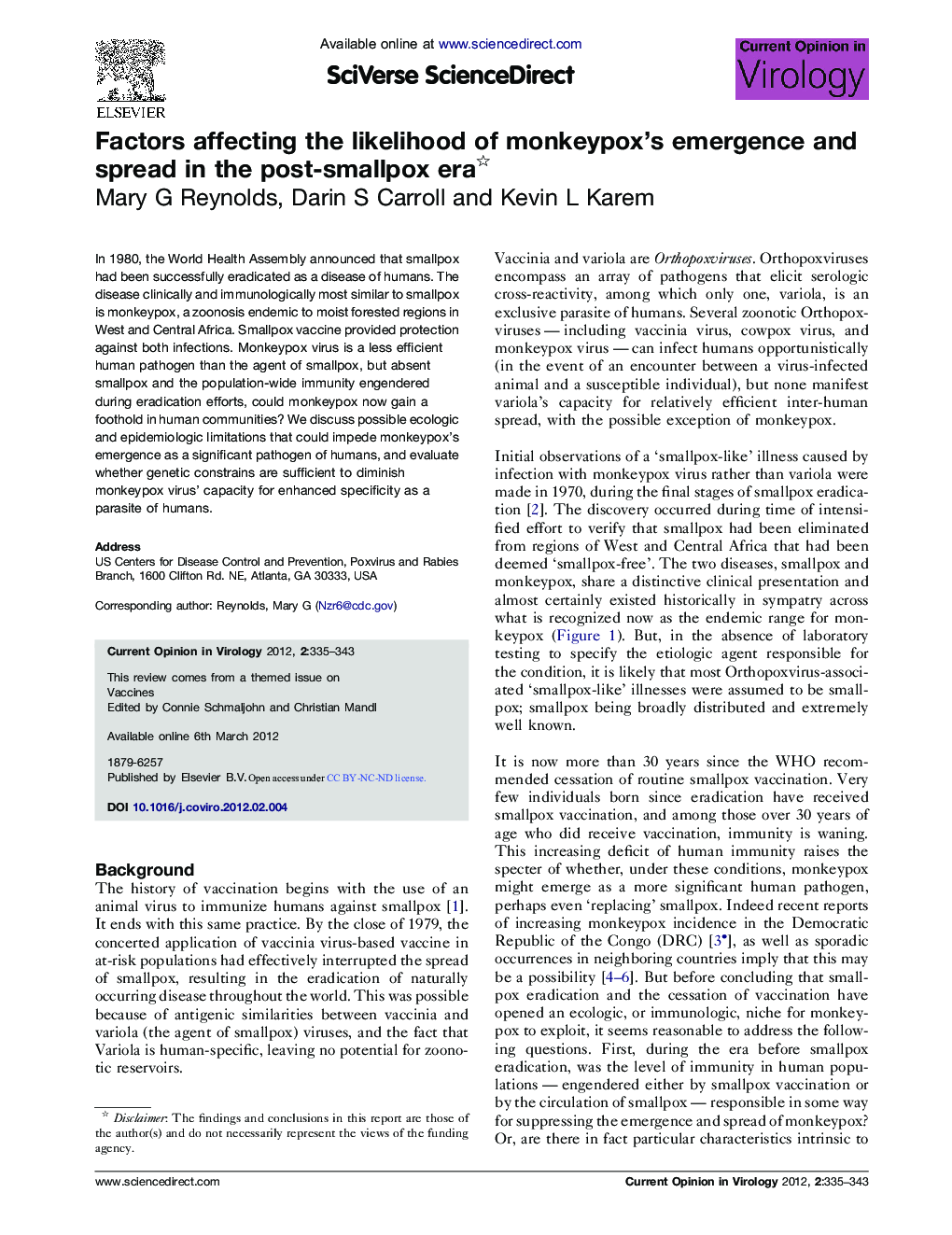| Article ID | Journal | Published Year | Pages | File Type |
|---|---|---|---|---|
| 5806976 | Current Opinion in Virology | 2012 | 9 Pages |
In 1980, the World Health Assembly announced that smallpox had been successfully eradicated as a disease of humans. The disease clinically and immunologically most similar to smallpox is monkeypox, a zoonosis endemic to moist forested regions in West and Central Africa. Smallpox vaccine provided protection against both infections. Monkeypox virus is a less efficient human pathogen than the agent of smallpox, but absent smallpox and the population-wide immunity engendered during eradication efforts, could monkeypox now gain a foothold in human communities? We discuss possible ecologic and epidemiologic limitations that could impede monkeypox's emergence as a significant pathogen of humans, and evaluate whether genetic constrains are sufficient to diminish monkeypox virus' capacity for enhanced specificity as a parasite of humans.
⺠We evaluate whether monkeypox can fill the niche left vacant by smallpox eradication. ⺠We discuss ecologic and epidemiologic limits that could impede monkeypox's emergence. ⺠We assess genetic constrains that may hamper monkeypox from becoming a human-adapted virus.
